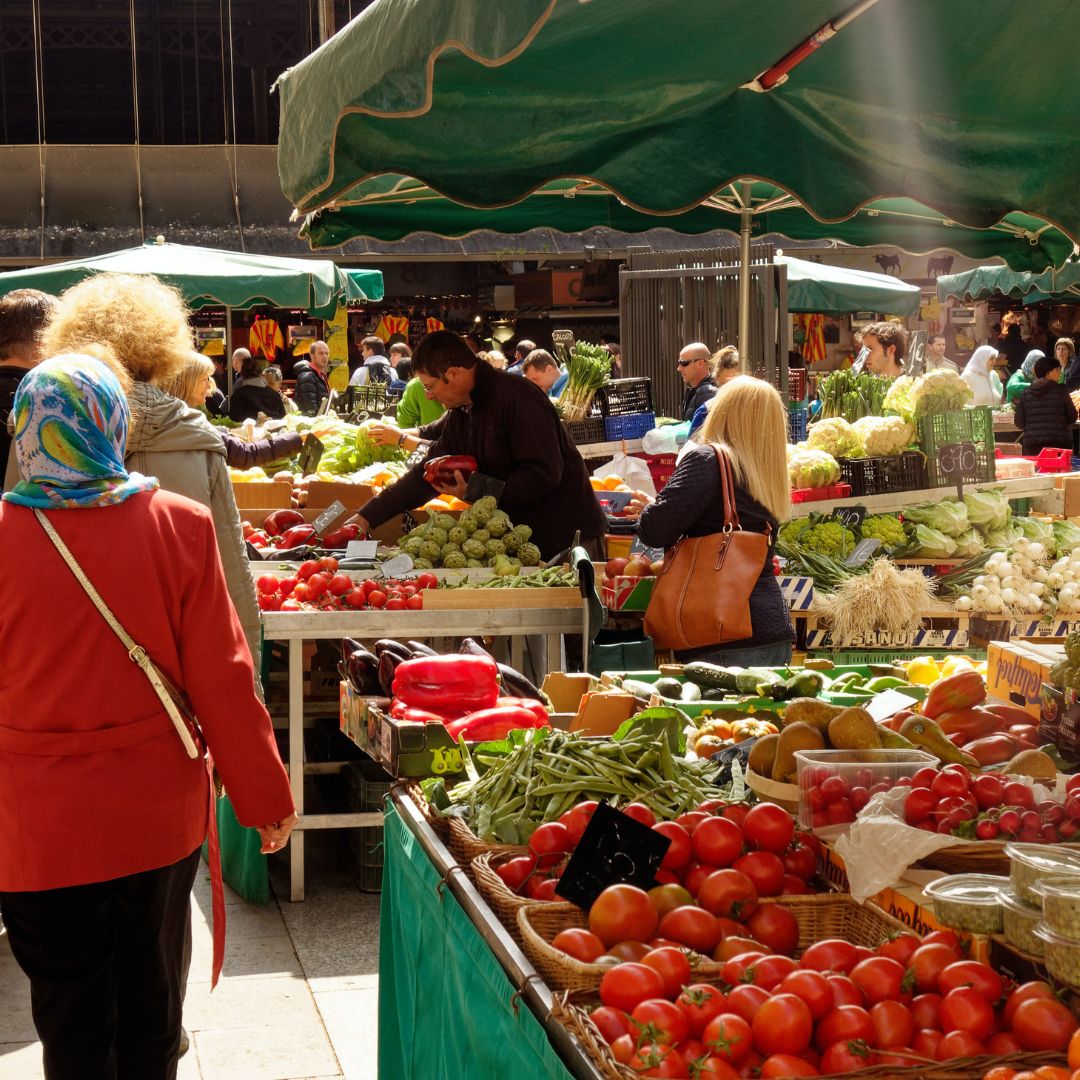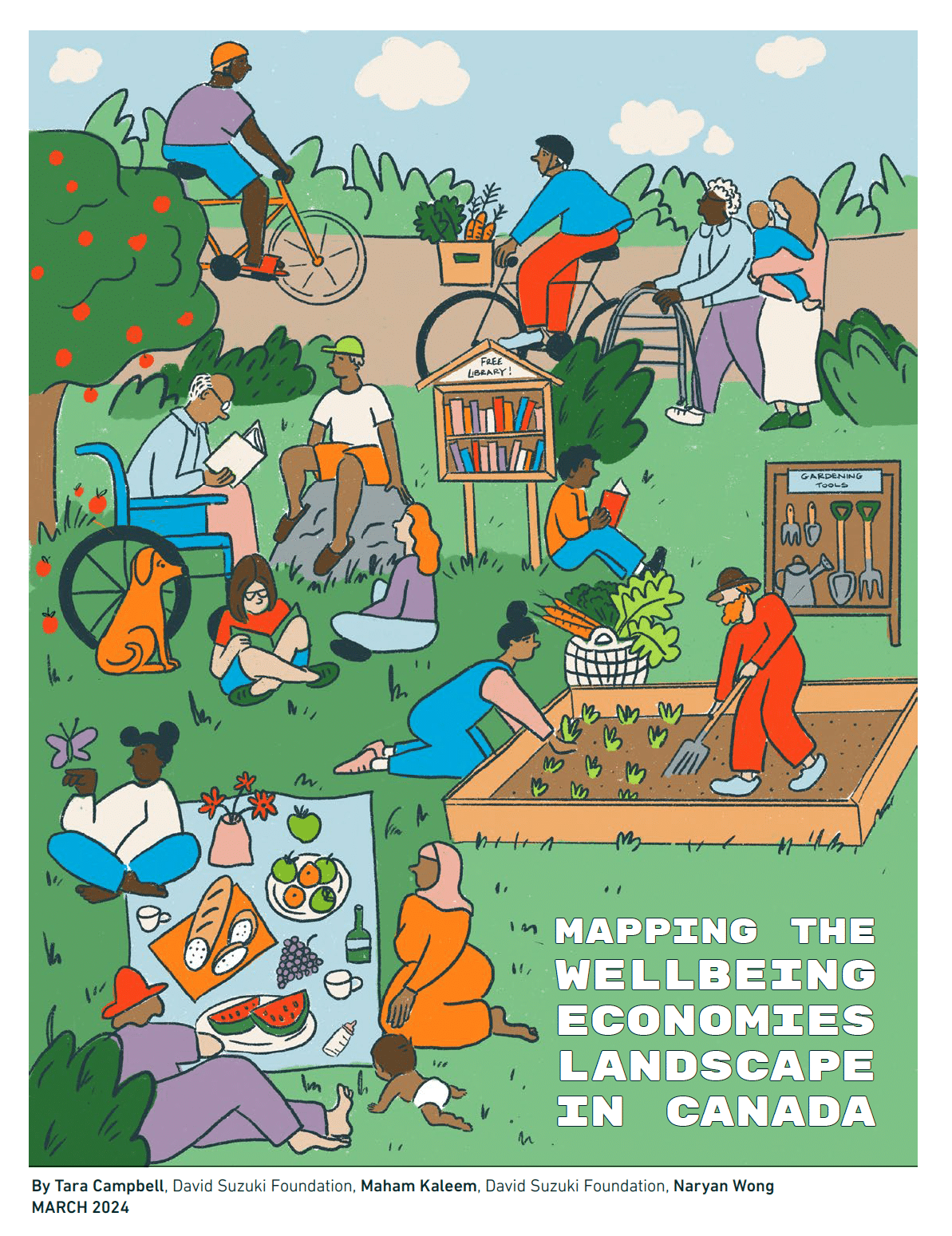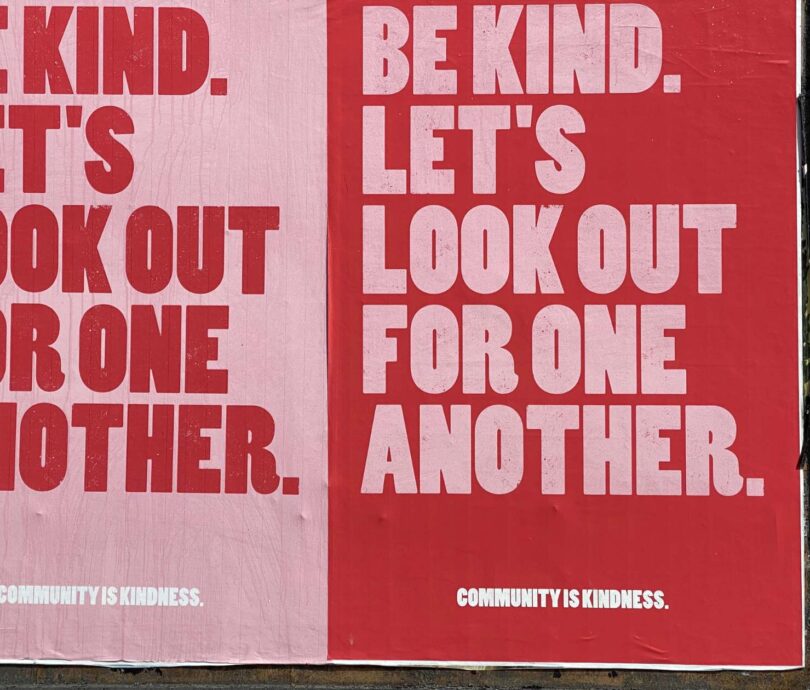We need an economic system that helps all life thrive
The prevailing economic model, deeply rooted in colonial influences, relentlessly pursues constant material growth through a linear “make, use, dispose, repeat” process. This pattern generates waste, damages the environment and neglects justice and equity.
Within this traditional model, crucial aspects of life, including people and nature, are often considered “externalities.” This approach perpetuates overconsumption, waste and environmental crises and makes clear the pressing need for social justice initiatives.
What might an alternative model encompass? One that values and sustains nature while enhancing key priorities like health, shared prosperity and wellbeing. A wellbeing economy, driven by purpose and regeneration, places people’s wellbeing at the forefront.
The Wellbeing Alliance

The Wellbeing Economies Alliance for Canada and Sovereign Indigenous Nations (WEAll Can) aims to bridge concerns about environmental sustainability and social inequality by building a dynamic network committed to reshaping the economy to prioritize the wellbeing of people and planet.
Mapping the Wellbeing Economies Landscape in Canada

This report presents a landscape analysis of people, projects and organizations throughout Canada that are working to create wellbeing economies. Wellbeing economies are an alternative to our current economic reality and are centred on a different purpose: to enable the flourishing of all life.
SEE WELLBEING ECONOMIES IN ACTION

The unseen toll of the climate crisis on mental health
To honour World Mental Health Day’s aim of raising awareness of mental health issues and mobilizing efforts in support of mental health, we must prioritize solutions that include building communities with sustainability and wellbeing in mind.
Expert views
How diversity can lead to economic change
Canadian Multiculturalism Day celebrates our diverse heritage and promotes wellbeing economies from various cultures. Integrating these principles into our policies can create a stronger, more inclusive Canada that reflects our cherished values.
Wellbeing Economies Engagement Specialist
This Valentine’s Day, let’s rethink what love can actually do
Love extends beyond individual bonds; it's a force connecting us and our environment. In a world distorted by consumerism, this Valentine's Day invites us to redefine love and tap into its power for transformative change.
Wellbeing Economies Engagement Specialist
Addressing the loneliness epidemic through wellbeing economies
As the holidays near, Canadians prepare for festivities, yet a silent loneliness epidemic persists. In our hyper-connected world, the feeling of isolation continues to rise. It's time for Canada to address loneliness by redefining prosperity.
Wellbeing Economies Engagement Specialist
Fuelling a wellbeing revolution: Embracing the end of fossil fuels
In the aftermath of the climate strikes, Maham is left with a profound sense of optimism. People are ready for change, and they are willing to work together to make it happen. The transition away from fossil fuels is not seen as a burden but as an opportunity — a chance to build a world where well-being is at the forefront of their priorities, supported by a solid foundation of scientific data.
Wellbeing Economies Engagement Specialist
Core principles of a wellbeing economy

Human flourishing
An emphasis on human flourishing means going beyond economic measures to focus on holistic development. This involves policies that enhance health, education, social connections and a sense of purpose. For instance, initiatives like providing access to counselling services, promoting work-life balance and integrating mindfulness programs in schools and workplaces contribute to human flourishing. Humans flourish when they have the space to move beyond the stress of precarity and have freedom to engage in meaningful relationships and work.

Environmental sustainability
A commitment to environmental sustainability acknowledges the interconnectedness between human wellbeing and the health of the planet. Policies can include investing in renewable energy sources, promoting energy efficiency and implementing measures to reduce carbon emissions. Additionally, initiatives and systems such as circular economy, reforestation projects and sustainable land-use planning play a crucial role in ensuring the long-term health of the environment.

Equity and social justice
Social equity and justice form the bedrock of a wellbeing economy, rooted in pillars of participation, democracy, and self-determination. It actively engages individuals in decision-making processes to ensure that diverse voices contribute to shaping policies. This inclusive approach aims to diminish inequalities by fostering democratic participation, granting fair access to resources, opportunities, and benefits. Policies aligned with these pillars not only address income inequality but also promote social inclusion and create a robust safety net for vulnerable populations. In embracing self-determination, the wellbeing economy recognizes the importance of empowering communities to define and pursue their own paths toward shared prosperity.

Future – oriented thinking
Prioritizing long-term thinking involves considering the impact of decisions on future generations. This includes investing in education and skills development to prepare the workforce for future challenges, adopting sustainable agricultural practices to ensure food security and implementing policies to address the impacts of an aging population on healthcare and social services.
